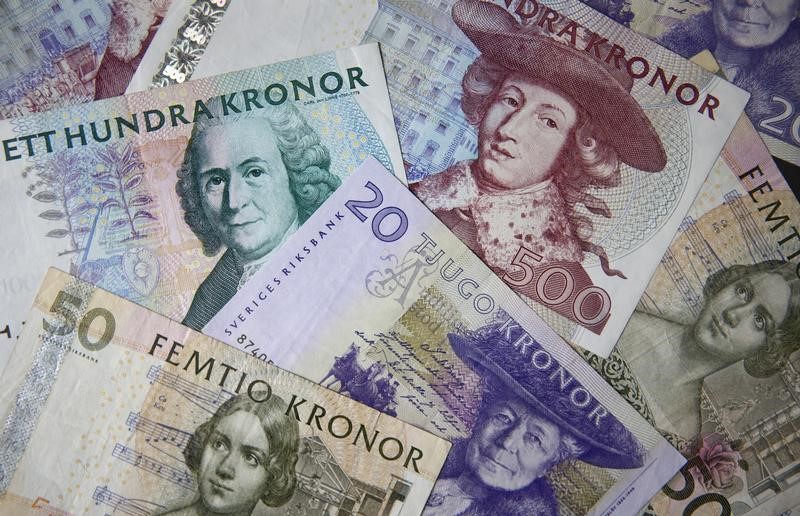By Geoffrey Smith
Investing.com -- The money-laundering crisis affecting Scandinavia’s banks shows no signs of easing up.
Shares in Skandinaviska Enskilda Banken (ST:SEBa), the latest Nordic bank to be accused of channeling illicit funds from the former Soviet Union, managed a weak rebound on Wednesday after it issued a statement that was only a qualified rebuttal of the claims. It's still down 11% from immediately before Swedish broadcaster SVT made its claims.
"In the comprehensive analysis that we have made of our business in the Baltics, we have not seen that SEB has been used for money laundering in a systematic way."
However, it added that between 2005 and 2018, its Estonian branch had processed nearly 26 billion euros ($28.7 billion) of payments from non-residents that would not meet the bank’s current standards for transparency. That was around one-third of all the non-resident transactions handled by the branch in that time.
It also said it had ceased doing business with 95% of the clients named by SVT.
Since the middle of last year, both Danske Bank (CSE:DANSKE) and Swedbank (ST:SWEDa) have fallen sharply after revelations that their operations in the Baltic States were used by (mainly Russian) entities to launder money. Neither stock has staged any meaningful recovery, even though the maximum fine expected by most analysts is much smaller than the loss of market value since the revelations.
That’s mainly because dealing with the authorities has been a huge suck on management time and energy, and because the banks have had to spend heavily on tightening their compliance capabilities – something that has taken a big bite out of their profits.
Danske, which announced early in the year it would spend $295 million on beefing up its anti-money-laundering systems, said in October it would freeze almost all hiring except in regulatory jobs. It also issued a profit warning at the start of this month after its cost-income ratio, a measure of core profitability - surged to 58.5%. It said it wants to get that ratio back to the low 50s by 2023, but that may be difficult given that it has lost the business of nearly 20,000 customers due to the scandal.
For now, SEB seems to have avoided the worst. The shares have held above the low made last year when the crisis initially broke. However, Danske and Swedbank – another Swedish bank facing similar allegations - have been less fortunate. They’re two of the three worst-performing European bank stocks this year, quite a distinction in a crowded field. Another bank facing money-laundering issues, Dutch-based ABN AMRO (AS:ABNd), is the fifth-worst performer in the sector year-to-date.
For investors willing to brave the risks, there are some signs that the market can overshoot in marking down the banks in question. ING Groep (AS:INGA) has rebounded smartly this year – 11% year-to-date from a money-laundering fine of just under 1 billion euros in 2018, the biggest ever handed down by Dutch regulators. Also, some important fundamentals are moving in the Nordic banks’ favor, with Sweden’s central bank set to exit its negative interest rate policy next month, and the euro zone economy also seemingly bottoming out.
Moreover, Swedbank and Danske are – at least for now – still trading at dividend yields of over 10%, which provides some protection against future regulatory hits. But until the regulators say their final word, they remain a very high-risk bet.
